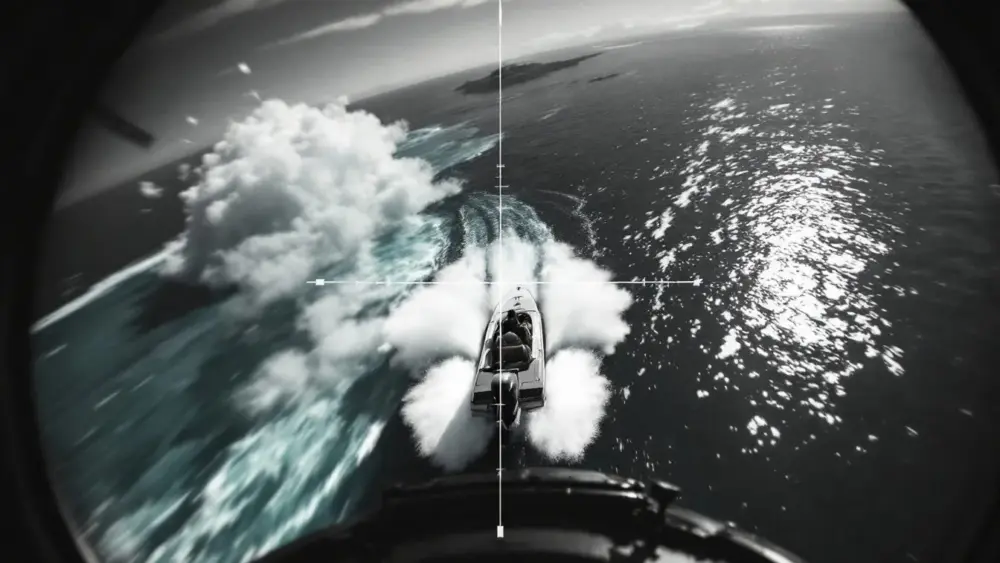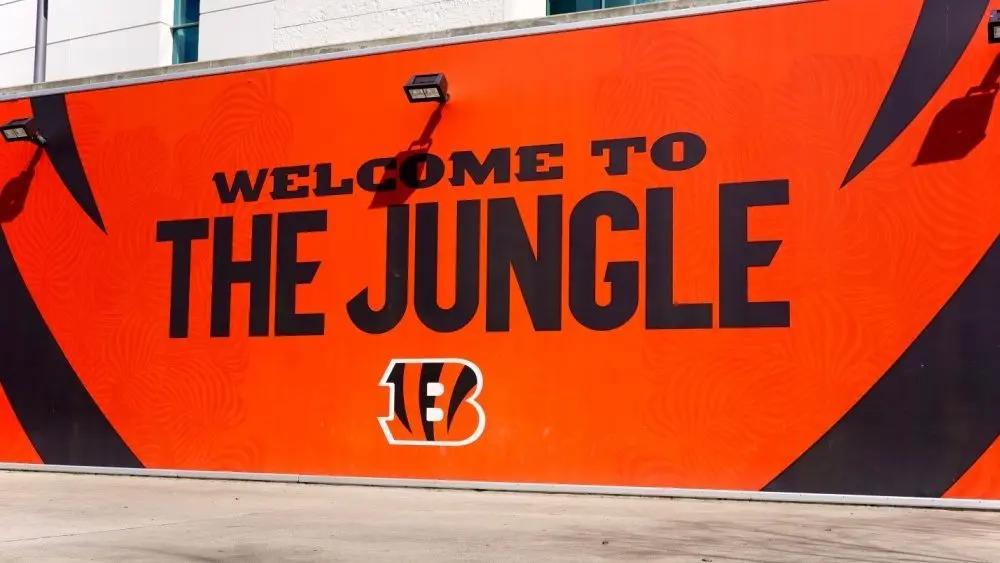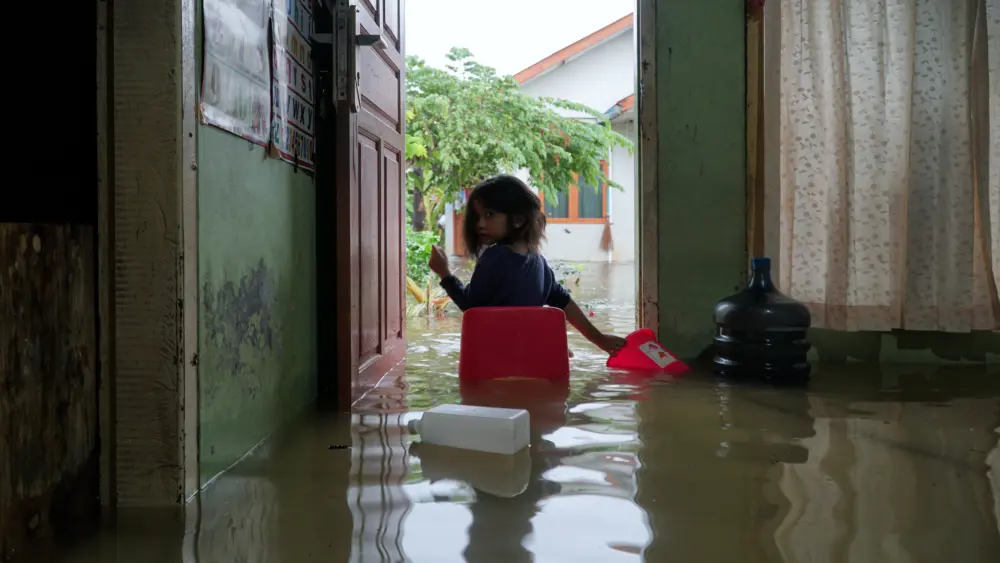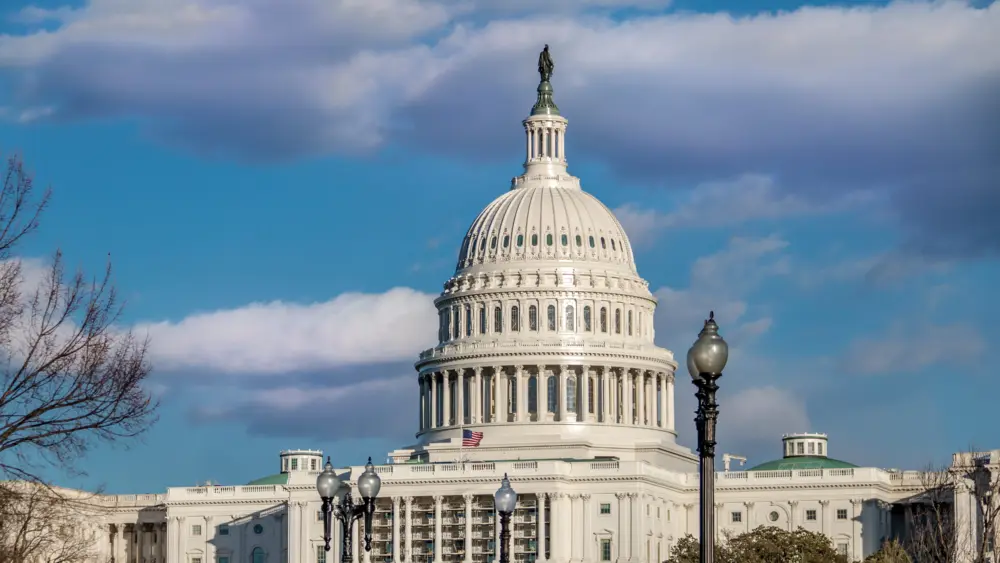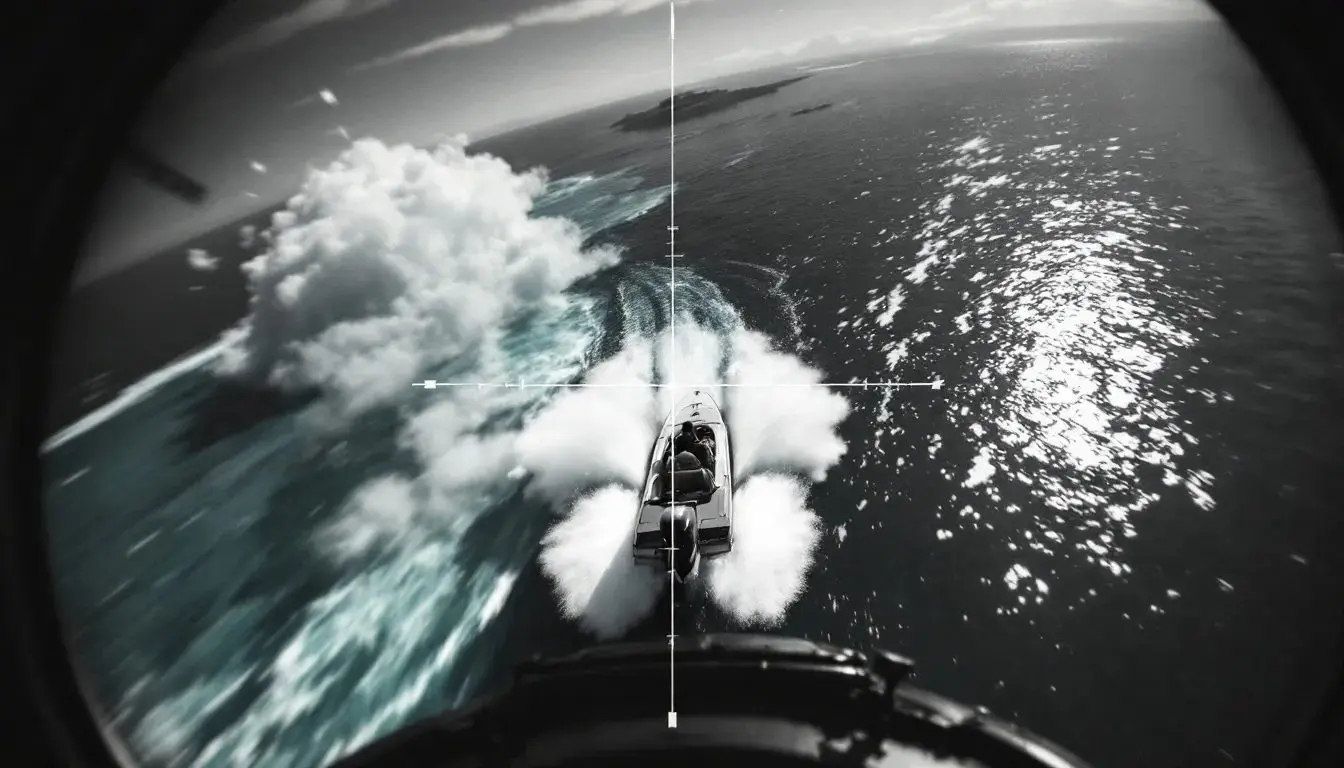
Sensor chasing a go fast boat in the carrib / Envato AI Generated image
by Emmitt Barry, with reporting from Washington D.C. Bureau Staff
(Worthy News) – The U.S. military struck a second vessel in international waters on Monday, killing three people alleged to be Venezuelan “narcoterrorists” transporting illegal drugs, President Donald Trump announced.
Trump revealed the operation in a post on Truth Social, accompanied by an unclassified video showing the boat exploding in a fireball. He said the men aboard were Venezuelans and accused them of trafficking cocaine and fentanyl bound for the United States.
“This morning, on my orders, U.S. Military Forces conducted a SECOND Kinetic Strike against positively identified, extraordinarily violent drug trafficking cartels and narcoterrorists in the SOUTHCOM area of responsibility,” Trump declared, referring to the U.S. Southern Command’s jurisdiction, which covers Central and South America as well as the Caribbean.
Escalating Campaign
The strike marked the second time this month that the Trump administration has authorized military force against alleged drug-running vessels in international waters. On Sept. 2, U.S. forces killed 11 people on another boat, claiming they were members of the Venezuelan criminal syndicate Tren de Aragua. Venezuelan officials disputed the claim, saying fishermen were among the dead.
The Pentagon has not released further details about Monday’s strike, including the location or the identities of those killed. The video released by Trump showed the targeted vessel nearly stationary before it was destroyed, with no visible evidence of narcotics in the surrounding waters.
Venezuelan authorities have not publicly commented on the latest incident.
Legal and Political Backlash
The strikes have sparked a fierce debate in Washington over Trump’s authority to unilaterally order lethal military force against suspected civilian traffickers.
Sen. Jack Reed (D., R.I.), the top Democrat on the Senate Armed Services Committee, warned that Trump was bypassing Congress and international law. “No president can secretly wage war or carry out unjustified killings—that is authoritarianism, not democracy,” Reed said.
Rep. Jamie Raskin (D., Md.) argued the operations “short-circuit due process,” noting, “Only Congress has the power to declare war… The government is not the police, the prosecutor, the judge, the trial, and the executioner.”
Human rights advocates echoed those concerns. Daphne Eviatar of Amnesty International said labeling traffickers as “terrorists” does not grant the U.S. legal authority to kill them. “They can call them terrorists, but that doesn’t mean that we’re in an armed conflict with that group,” she said.
Some Republicans, however, defended the president’s approach. Sen. John Kennedy (R., La.) said, “My head sees both sides of the argument, but my heart agrees with the president… I think we should treat them like terrorists.”
Venezuela on Alert
Venezuelan leader Nicolás Maduro, who had already condemned the Sept. 2 strike, accused the U.S. of trying to provoke a conflict to gain control of his country’s oil and mineral wealth. He said his government was “beefing up its defense” in response to the U.S. military buildup in the Caribbean, likening the situation to the Gulf of Tonkin incident that escalated the Vietnam War.
“We are exercising our legitimate right to defend ourselves,” Maduro said. “We are more prepared for any aggression than we were five weeks ago.”
Wider Implications
The Trump administration insists the strikes are deterring traffickers. “We’re seeing that there are no ships in the ocean anymore,” Trump told reporters, suggesting even fishermen may be avoiding the waters out of fear of being mistaken for smugglers.
Secretary of State Marco Rubio, a longtime critic of Maduro, defended the approach on Fox News, saying, “Some of these boats need to be not just intercepted but stopped, no matter what direction they plan to head.”
With U.S. warships, drones, and Marines now deployed in the Caribbean, the unprecedented use of military strikes against suspected drug boats signals a sharp escalation in America’s anti-trafficking campaign—and raises the prospect of a dangerous confrontation with Venezuela.
The post U.S. Military Conducts Second Strike on Venezuelan Vessel, Killing Three in Escalating Anti-Drug Campaign appeared first on Worthy Christian News.






